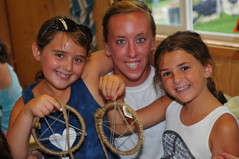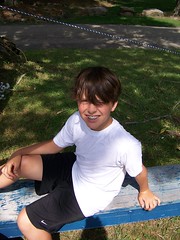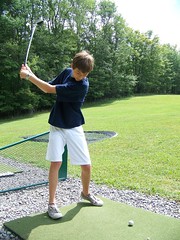Life at camp centers around the core values of friendship, family, and tradition — and the international camp experience is no exception.
Whether campers come from abroad to experience American culture or come from local areas to experience the international camp lifestyle, summer camp has something to offer to everyone when it comes to experiencing a new culture. (And having a blast playing sports, singing around the campfire, and playing around on the lake of course!)
Values in common
International campers may come from countries as diverse as England, France, Spain, Italy, China, Korea and many more, but they all come to camp for the same thing: a traditional American experience that they’ll never forget.
International camp counselors place an emphasis on learning to appreciate the things that are different about the various cultures that arrive at camp, but they also place an emphasis on the things we all have in common.
We all love family. We all love to laugh. And the first time singing around the campfire is magical for everybody — no matter whether they’ve seen a campfire, marshmallows, or fireflies before.
Fun: the universal language
While English is the common ground for international campers, it’s always fun when campers are able to experience a new language, or even find someone who shares their mother tongue to joke around with. “Oh, you speak Spanish too!”
American experiences
Something that draws many international campers all the way to North America is the promise of a traditional American experience… but of course once they’re here, the cultural exchange goes both ways!
When it comes to American traditions, it’s hard to find something more quintessential and unique than summer camp. From raising the flag in the morning to singing goofy songs around the dining hall at dinner, what seems normal and routine to returning American campers is exotic and fascinating to campers from Europe and Asia!
Thanks to the amazing community of counselors and decades of tradition, no international camper returns home without a few amazing stories to tell.
Campers with culture!
Friendship knows no borders. As connected as the modern world is, it’s surprisingly easy to remain out of touch with peers from other cultures.
International camp gives young people the chance to reach out and make contact with new friends from places they might not otherwise even think about — expanding the horizons of every single camper that participates in an international camp.
Passport to fun times
Whether you make new friends overseas, have a fun time guessing each other’s accents, or just learn a word or two in Spanish of Italian, international camp makes incredible memories for everyone that comes out to partake in the camp lifestyle.
…You may not need a passport to get here, but you’re guaranteed to have an international experience!






 ,
, Nicolas had mostly attended an international school and studied English in Switzerland, so his communication skills were well developed and he felt comfortable with the prospect of adjusting to a new culture. He had also previously visited the United States and after switching to Swiss school last year, his mother wanted him to retain his fluency in English, learn about American culture first hand, and make American friends. Christine says there are a number of American camps that promote their programs in Switzerland but she avoided their outreach since she “did not want to send Nicolas to the United States just to meet other French guys!!!”
Nicolas had mostly attended an international school and studied English in Switzerland, so his communication skills were well developed and he felt comfortable with the prospect of adjusting to a new culture. He had also previously visited the United States and after switching to Swiss school last year, his mother wanted him to retain his fluency in English, learn about American culture first hand, and make American friends. Christine says there are a number of American camps that promote their programs in Switzerland but she avoided their outreach since she “did not want to send Nicolas to the United States just to meet other French guys!!!” Christine’s nieces both had a wonderful camp experience in the United States, but Christine felt that Nicolas would be more open to forging friendships and getting to know American kids, if he ventured on his own—and every mother understands that each child is different! Nicolas completely agreed about coming to camp on his own and since he was a little familiar with American culture and speaks English, that’s what worked for him.
Christine’s nieces both had a wonderful camp experience in the United States, but Christine felt that Nicolas would be more open to forging friendships and getting to know American kids, if he ventured on his own—and every mother understands that each child is different! Nicolas completely agreed about coming to camp on his own and since he was a little familiar with American culture and speaks English, that’s what worked for him.